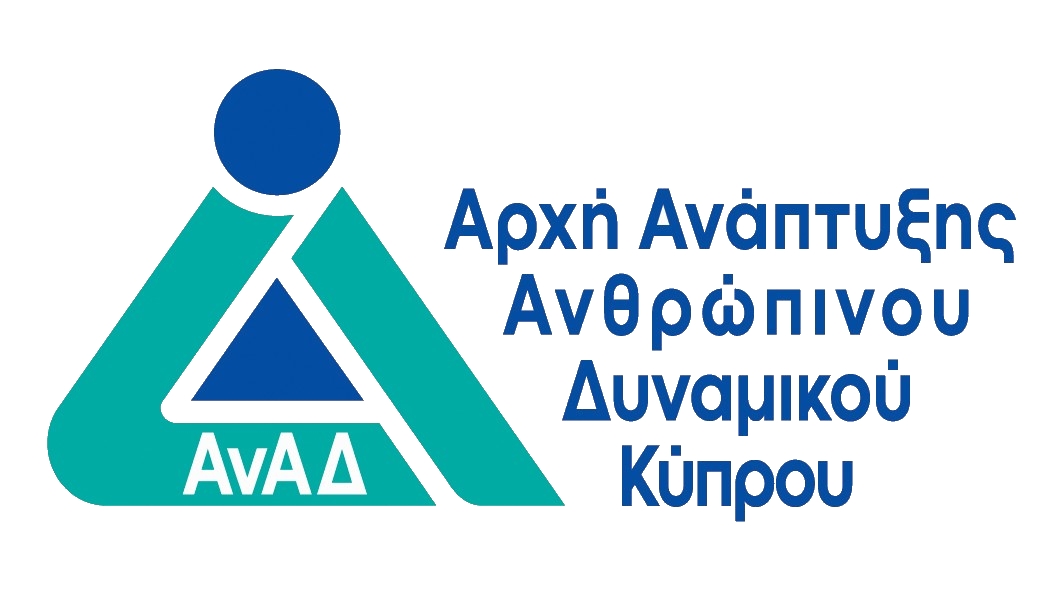
Disrupt or Be Disrupted: Innovative Business Development for the Modern Law Firm (100% Subsidized)
- Νομοθεσία, Νομική & Δικηγόροι

ΠΕΡΙΓΡΑΦΗ
This course is designed to equip law firm leaders and business development professionals within law firms, with the tools to align their firms with international standards and new innovative methodologies that these international law firms are implementing to serve their growth in these challenging times. By integrating cutting-edge techniques such as the OKR framework, legal tech, and AI-driven solutions, participants will learn how to foster growth, engage in lead generation, and develop innovative legal offerings. Through interactive modules and tailored hands-on training, this course ensures that firms remain competitive in both local and global markets, adhering to the latest and innovative industry practices while building sustainable business development strategies.
The need for this course arises from the fact that the legal sector operates under distinct business development dynamics, which require specialised strategies tailored to law firms. Unlike other industries, law firms face more stringent regulatory constraints, depend heavily on long-standing reputations, and often navigate complex client relationships. General business development courses fail to address these unique challenges. In Cyprus, many law firms still rely on conventional strategies for client acquisition, strategic development and firm growth, which have become outdated and limit their competitive potential. As international law firms increasingly adopt innovative tools—such as legal tech, AI-driven client management systems, and data analytics— Cypriot firms must evolve or risk falling behind.
This course fills a significant gap in the Cypriot legal market by offering tailored strategies that cater specifically to law firms. It introduces cutting-edge methodologies, such as the OKR framework, legal tech integration, and AI solutions, which, when applied effectively, can be customised to drive the growth of a law firm. These tools are becoming the international standard, and without them, Cypriot firms risk losing operational efficiency and competitiveness.
Moreover, the course is essential for fostering a culture of continuous innovation within law firms, crucial for sustainable growth. In today's increasingly globalised legal market, the ability to implement strategic planning, lead generation, and client-centric services through modern technologies is no longer optional—a necessity. The course not only educates firms on the effective use of these tools but also demonstrates how to strategically align them with long-term growth goals. With international trends rapidly evolving, Cypriot law firms need the guidance of someone with extensive experience advising leading firms on business development, ensuring they remain competitive in both local and global markets. The need for this training is further cemented by the fact that a legal training centre, we consistently receive requests from employers regarding business development and international expertise in law firm strategy and planning - we aim to fill this gap and train law firm leaders in the new and modern innovative tools that exist and are underutilised within the Cyprus legal market.
ΣΕ ΠΟΙΟΥΣ ΑΠΕΥΘΥΝΕΤΑΙ
This course is suitable for:
- CEO's/Directors/partners of law firms.
- Associates or Business Development Professionals.
- Candidates must be those who are tasked with business development, strategic development, and lead generation within a law firm in Cyprus
ΠΕΡΙΣΣΟΤΕΡΕΣ ΠΛΗΡΟΦΟΡΙΕΣ
Course content
Module 1: Introduction to Business Development in the Legal Sector
- Understanding the role of business development in a law firm.
- Why business development matters
- Analysing differences between business development in legal and other professional sectors – comparative analysis
- The importance of creating a business development culture within the firm
- How business development supports the strategic objectives of a law firm – staying competitive in local and international markets.
- The components of business development in the legal sector.
- Developing a business development mindset in the firm from the top down – why?
- Discussion: exploring different approaches to business development teams within law firms and the pros and cons of each (centralised vs. decentralised, partner-driven vs. dedicated BD professionals)
- Case study: Example of law firms that have successfully implemented innovative business development strategies to grow their firms using strategy and vision, innovative service offerings, and client-centric focus.
- Less Successful Firms - Lessons Learned when traditional and non-innovative, and modern methods are ignored.
- Interactive polling activity: participants will provide their opinions on strategies discussed (e.g. how important is niche specialisation?, is technology essential for business development?)
- Techniques of training for this module: Case Studies: Objective, encouraging interactive learning, and bridging theory with practice.
- Interactive Polling: Objective: encouraging solicitation of discussion, opinions and critical thinking.
- Discussion Objective: to foster critical thinking and collaboration between participants and participants and trainer.
- Presentation by trainer: Objective: To provide information to the participants in an organised and logical format.
- Comparative analysis: Objective: To solicit critical thinking by comparing two systems and approaches.
Module 2:Innovation in strategic planning: Setting Clear Objectives and Strategies using the OKR framework tool
- Discussion of traditional strategic planning methods (SWOT, Five-Year Plan, linear goal setting, SMART analysis).
- Why don’t old methods work today in the context of a law firm?
- Presentation of the OKR (Objectives and Key Results) framework – a modern and innovative approach to strategic planning for law firms.
- How does OKR differ from traditional goal setting
- The key elements of an OKR strategy (objective elements, key result elements, focus and simplicity)
- Benefits of OKRs in law firms
- Crafting an effective business strategy and aligning it with the firm's vision and mission – how to implement OKRs in your law firm.
- What are the OKR challenges, and how to overcome them
- Interactive Activity experiential workshop: Business Strategy Simulation, implementing the OKR strategy. Participants will enter a virtual business development simulation where they will be tasked with creating a strategy using the OKR method for a mock law firm.
- Each team will present their strategic decisions, and the trainer will provide feedback based on the success of their simulated business plan using the OKR method.
- Techniques of training for this module:
- Discussion: Objective: to foster critical thinking and collaboration between participants and participants and trainers.
- Presentation by the trainer: Objective: To provide information to the participants in an organised and logical format.
- Experiential workshop: The objective apply the theory to a practical scenario, giving participants hands-on experience, which is of vital importance.
Module 3:Use of legal tech and AI integration for innovation in business development within the OKR framework for business strategy
- The importance of AI and legal tech to ensure the growth and sustainability of your law firm.
- Introduction to CRM systems and key functions
- Using CRM tools and software to track leads, manage client relationships and identify opportunities for cross-selling services.
- Aligning CRM usage with OKRs
- Practical examples of cross-selling with the use of CRM data
- Leveraging automation tools to reduce administrative tasks
- Overview of automation tools in legal tech.
- Innovative methods to automate workflow
- Integrating automation into OKRs
- AI-driven case management systems – should I? and how?
- Key features of an AI-driven system within the context of a law firm
- Benefits of AI tools for business development within the context of a law firm
- Aligning AI with OKRs
- The use of client portals for innovative client management – a new approach to online tools.
- Brainstorming Benefits of client portals – and aligning with OKRs
- Interactive activity: discussion as to the challenges in implementing legal tech and AI to further strategic goals and business development, and how to overcome them.
- Techniques of training for this module:
- Discussion: Objective: to foster critical thinking and collaboration between participants and participants and trainer.
- Presentation by trainer: Objective: To provide information to the participants in an organised and logical format.
- Brainstorming: Objective: to foster innovative thinking.
Module 4: Innovative Strategies for Lead Generation and Strategic Growth
- How lead generation differs in the legal sector vs. other sectors.
- Traditional methods of lead generation – why they are not working today.
- Identifying the traditional key sources of leads: referrals, networking, online presence, content marketing, and thought leadership.
- The importance of developing a lead generation mindset and infrastructure, and how to cultivate this lead generation mindset within your law firm from the top down.
- Introduction to the role of tech-based data analytics in modern business development.
- Overview of data sources that can be used for lead generation: e.g. internal client databases, market reports, digital marketing data, and external data points, the CRM.
- Using legal tech tools covered in module 3, how to implement lead segmentation, automated follow-ups, drip email campaigns and reporting and analytics to measure the success of outreach efforts, behaviour-based triggers, and lead scoring.
- Implementing existing tech, such as chatbots, in an innovative way to generate leads and data collection, and integrating this technique into a wider innovative lead generation strategy.
- Interactive activity: participants will be asked to brainstorm their existing lead generation methods and write them down.
- Interactive Activity: Discussion on what we can implement now? What requires time, and how to plan for integrating innovative legal tech solutions to ensure a lead generation mindset from the top down within the business.
- Techniques of training for this module:
- Discussion Objective: to foster critical thinking and collaboration between participants and participants and trainer.
- Presentation by trainer: Objective: To provide information to the participants in an organised and logical format.
- Brainstorming: Objective: Fostering an innovative mindset.
Module 5: Developing Innovative Legal Offerings
- What is innovation in legal service offerings?
- Introduction to innovation in legal services: what differentiates successful international firms.
- Examples of successful innovation in legal offerings – innovation is not about new services or areas of the law, but offering them in an innovative way and discussing them.
- Analysing market needs and client demand to create innovative legal offerings using data-driven research (for example, implementing a competitive analysis brainstorming - How to identify gaps in the market and create tailored legal services that cater to client needs.
- A step-by-step process for taking a legal service from concept to market launch.
- Key factors to consider: pricing strategies, service delivery models, and marketing.
- Innovating with client-centric services
- Interactive activity. Participants will be asked to consider and write down their legal offerings/services and methods of offering those services to their clients, and compare them against the backdrop of international law firms' offerings.
- Techniques of training for this module:
- Discussion: Objective: to foster critical thinking and collaboration between
- participants and participants and trainer. Presentation by trainer: Objective: To provide information to the participants in an organised and logical format.
- Brainstorming: Objective: To foster critical thinking and innovation
Module 6: Creating and managing an international referral program with Innovative Tools
- Why international referrals matter - brainstorming with the group
- Examples of successful referral networks
- Identifying the right jurisdictions and partner firms for referral opportunities
- Partner firm selection criteria
- How to build and maintain strong cross-border relationships
- Maintaining relationships long term - group discussion
- Creating a referral program strategy – step by step – how do international firms do it - Case study
- Integrating legal tech and AI for tracking referral success – using your CRM and OKR strategic plan alignment
- Interactive Activity: Discussion on traditional methods of setting up an international referral program and how international firms have implemented more innovative strategies for referrals.
- Teaching techniques in his module: Presentation:Objective: To provide information to the participants in an organised and logical format. Discussion Objective: to foster critical thinking and collaboration between participants and participants and trainer.
- Case Studies: Objective, encouraging interactive learning, and bridging theory with practice.
- Discussion Objective: to foster critical thinking and collaboration between participants and participants and trainer.
Module 7:Strategic Mapping and Innovation through Data-Driven Growth
- Analysing a firm’s existing business development efforts.
- Introduction to strategic mapping: understanding the firm’s current clients, areas of expertise, and market opportunities.
- Overview of data mining techniques and how they can be applied to client databases for identifying trends.
- How to collect and analyse data from existing client portfolios to identify key growth sectors.
- Introduction to innovative tools for client segmentation and mapping growth areas.
- Innovative Client-centric service models
- Shifting from the traditional lawyer-centric model.
- Client experience mapping – what is it and how to use it in the law firm setting.
- Customisation of legal services - brainstorming
- Proactive client engagement.
- Using the innovative AI-Powered tools that help law firms understand client needs through analysis of contracts, case data and market trends.
- How to implement AI-driven segmentation based on contract data, case outcomes and client history.
- Interactive activity: Trainer-led discussion on whether it is possible in their law firm to switch direction and implement a client-centric service model that is being implemented by many international law firms, shifting away from the traditional lawyer-centric model.
- Training techniques for this module:
- Discussion Objective: to foster critical thinking and collaboration between participants and participants and trainer.
- Presentation by trainer: Objective: To provide information to the participants in an organised and logical format.
- Brainstorming: Objective: to foster
Αναλυτικό Κόστος Σεμιναρίου
Για Δικαιούχους ΑνΑΔ
- € 1800.00
- € 1800.00
- € 0.00
- € 0.00
- € 0.00
Για μη-Δικαιούχους ΑνΑΔ
- € 1800.00
- € 0.00
- € 342.00
- € 1800.00
- € 2,142.00
ΠΡΟΓΡΑΜΜΑ ΣΕΜΙΝΑΡΙΟΥ
Πέμπτη - 27 Νοε 2025
Ώρα
17:00 - 19:00
Τοποθεσία:
OnLine Virtual Classroom
Δευτέρα - 01 Δεκ 2025
Ώρα
17:00 - 19:00
Τοποθεσία:
OnLine Virtual Classroom
Πέμπτη - 04 Δεκ 2025
Ώρα
17:00 - 19:00
Τοποθεσία:
OnLine Virtual Classroom
Δευτέρα - 08 Δεκ 2025
Ώρα
17:00 - 19:00
Τοποθεσία:
OnLine Virtual Classroom
Πέμπτη - 11 Δεκ 2025
Ώρα
17:00 - 19:00
Τοποθεσία:
OnLine Virtual Classroom
Δευτέρα - 15 Δεκ 2025
Ώρα
17:00 - 19:00
Τοποθεσία:
OnLine Virtual Classroom
Πέμπτη - 18 Δεκ 2025
Ώρα
17:00 - 19:00
Τοποθεσία:
OnLine Virtual Classroom
 Ελληνικά
Ελληνικά  English
English



 Αγγλικά
Αγγλικά
 14 ώρες
(
7 μέρες
)
14 ώρες
(
7 μέρες
)











